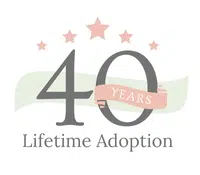Birth Mother Grief

It is only natural for expectant mothers to experience stages of grief or a sense of loss when they choose to place a child for adoption. But the grieving process is not a bad thing; it is crucial and fundamental to mental health and wellbeing. Though difficult, it is healthy for the birth mom to allow herself to feel that pain.
Still, that doesn’t make the pain any less real for both the birth mother and the adoptive parents. Even during difficult times, such as an unplanned pregnancy, it can be helpful to know there are support groups. They can help deal with the tidal wave of emotions that sometimes feel as if they will overwhelm us. Also, an adoptive parent who has gone through the open adoption process with the mothers can play a big role here.
Of course, adoptive mothers may find themselves empathizing so much with the birth mother that they are unable to experience the joy a new child brings them. This is particularly true when the biological parents and the adoptive parents become close to one another prior to the adoption. Adoptive mothers may feel guilt at their own happiness when they realize just what a sacrifice the birth mom has made.
Table of Contents
- Birth Mother Grief Doesn’t Diminish Why Adoption Was Chosen
- How You Can Help With Birth Mom Grief and Build Connection
- The Beauty of Open Adoption
- Mixed Feelings for the Adoptive Mother
- How Lifetime Adoption Can Help
Birth Mother Grief Doesn’t Diminish Why Adoption Was Chosen
Adoptive parents should remember that while the grief is very real it doesn’t diminish the reason the birth parents chose adoption. It is also good for adoptive families to remember that the birth mother chose them out of all other available couples to raise her baby.
A birth mother who chooses open adoption does not have to stay separated from the child as is the case with closed adoptions. This ability to see the child grow and thrive makes the grief process easier to navigate for everyone involved. It also lessens the amount of time the birth mother spends in sadness.
Birth parents choose the adoptive parents for a reason. They spend an enormous amount of time, energy, and love picking the best parents for their child. Additionally, the adoptive mother should remember this when her feelings of sadness for the birth mother begin to overwhelm her. So she should take the time to remind herself that the birth mother felt she would be the best possible mother for the child.
How You Can Help With Birth Mom Grief and Build Connection
Understanding the birth mother’s grief can help the adoptive mother to connect on an even deeper level with her child. Additionally, as the baby grows, the adoptive parents can share with him or her the feelings that were experienced by everyone before, during, and after the adoption.
Undoubtedly, the child will feel reassured knowing that both biological and adoptive parents put so much energy and emotion into the adoption process.
The birth mother will move through the grief process to healing. She knows that she made the right choice with adoption and with the parents chosen for the baby. In an open adoption, she also knows that she will be a part of that baby’s life in the way that everyone agreed upon. Understanding all of these things will help birth mothers move on with their own lives in a positive and healthy way.
After you adopt, your baby’s birth mother might be experiencing deep depression and grief. Birth mothers typically experience a unique form of grief. Unlike the suffering experienced when losing a loved one to death, birth mother grief is more complex. It may feel like grief in the way of separation from a life that she might have known with her child. Here are some things you can do to help with the grief process:
1. Keep in touch and ask her how she’s feeling
A wonderfully effective way to help your child’s birth mother during her post-adoption blues is to stay in touch with her. Make sure to keep up with your promises of open adoption. Even if she doesn’t reply to your emails, pictures, and letters, keep sending them.
She may find it difficult to put her thoughts into words, or it may simply be too hard for her to think about right away. Show her that you’re interested in her well-being, and it’s not about the baby. This will tell her that you see her as a unique person, not just the path to your soon-to-be baby. Knowing that she can remain a part of her child’s life will help relieve some of the birth mother grief she is experiencing.
2. Follow her lead at the hospital
Who does she want in the delivery room? Does she want to take photos together? Would she like to see and hold her baby? Who would she like to hold her baby first? Make sure to honor the birth mother’s hospital preferences, because she may need to have time alone with her baby to get closure.
3. Never judge her
We encourage you to accept your child’s birth mother just as she is. She’s made the very difficult choice of making an adoption plan for your baby. Your baby’s birth mother has chosen you and is trusting you to provide for her baby and love him or her unconditionally.
4. Show her that you care
The next time that you talk, ask her how she’s feeling. You may have heard of the stages of grief after the death of a loved one. Women who choose adoption experience a similar grief and loss process. It’s important to know that her feelings are intricate.
Sometimes, birth mothers feel like they’re overstepping their boundaries if they call or write you. If it’s been weeks or months since you’ve had contact, reach out to her. If you don’t feel comfortable reaching out, ask Lifetime to share with your child’s birth mother that you’re thinking of her.
Ask her about her goals and dreams, and her interests. Avoid making the conversation all about the health of the baby (which you’ll likely learn through medical records, anyway). By learning more about your birth mother, you can share these are stories later on with your child. Maybe your son or daughter will be athletically gifted – you will be able to share, “Your birth mother played varsity basketball in high school!”
5. Be clear
Don’t leave her waiting for more than a few hours at the most. If you need more time to discuss things privately or to pray, be honest with her. But, don’t keep her waiting. She may start to question your commitment to her baby.
6. Honor your promises
It may be that you’re one of the most stable figures in her life right now. She’s going out on a limb to trust you, so make sure to follow through on your promises. If you agreed to open adoption, send her the letters and photos you promised. Show her that she’s a valued and important person in your family’s life!
7. Encourage Her to Seek Help
These amazing women and men are placing their children for adoption out of great love, despite the pain they are causing to themselves. There’s a wide range of resources available for your child’s birth mother. So, you might ask her if she’s taken advantage of post-adoption counseling.
Lifetime Adoption can refer her to a licensed third-party counselor to speak with her and help her sort out her birth mother grief. Lifetime also maintains a peer support network comprised of women who are birth mothers themselves. Our peer counselors can discuss the emotions she may face after adoption and what helped them. Talking with another birth mother lets her realize that she’s not alone: the grief she’s experiencing right now is normal.
The Beauty of Open Adoption
While your attention will be on your baby, it’s vital to stay in touch with your child’s birth mother. Send her photos, a “thinking of you” note, and share about your baby’s milestones. Doing so can ensure she feels cared about and reassures her that her baby is doing well.
We’ve had many birth mothers tell us that staying in touch via open adoption helped them through their grieving process. As one birth mother puts it, “I know I made the right decision when I see what a positive life I gave her.”
Mixed Feelings for the Adoptive Mother
The adoptive mother may continue to have feelings of guilt and grief interspersed with her feelings of happiness. She should not berate or belittle herself for feeling these things. Instead, she should attempt to acknowledge and understand them.
Instead, she should also remind herself of the beautiful sacrifice made by the mom. She should live to honor that choice by raising the child in a healthy, stable, and loving environment.
It’s helpful for adoptive mothers to discuss these feelings with partners and extended adoptive family members, trusted companions, other family and friends, and even the birth mother herself. She may also need to consider a counselor if these feelings persist. She should simply remember not to let her own feelings overwhelm what is most important: providing love to her new child.
How Lifetime Adoption Can Help
Lifetime Adoption has been helping birth mothers since 1986. In fact, birth mothers and birth fathers are the heart and soul of Lifetime Adoption. As a domestic, open adoption agency, our focus is on helping birth mothers make the best choice for themselves and their children.
We have free resources for women seeking to place their child for adoption. Our nationwide adoption listings feature profiles of families waiting to adopt. We also help families looking to adopt and provide a free online adoption application.
Get More Info Now
If you live outside of the United States, please click here.

Lifetime Adoption, Inc. is a Licensed Child Placing Agency in Arkansas. (License AR #00050809)
Copyright © | Lifetime Adoption







